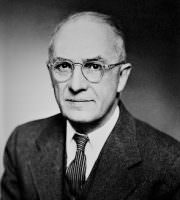About John Crowe Ransom
John Crowe Ransom, born April 30, 1888 in Pulaski, Tennessee and died July 3, 1974 in Gambier, Ohio, was an American poet, writer, scholar and literary critic. He published his first collection of poems, Poems about God in 1919. A book who was praised by Robert Frost and Robert Graves. He is considered to be a founder of the New Criticism school of literary criticism. As a faculty member at Kenyon College, he was the first editor of the widely regarded Kenyon Review. Highly respected as a teacher and mentor to a generation of accomplished students, he also was a prize-winning poet and essayist. His literary reputation is based chiefly on two collections of poetry, Chills and Fever (1924) and Two Gentlemen in Bonds (1927). Despite the brevity of his poetic career and output, Ransom won the Bollingen Prize for Poetry in 1951. His 1963 Selected Poems received the National Book Award the following year.He was a leading figure of the school of literary criticism known as the New Criticism, which gained its name from his 1941 volume of essays The New Criticism. The New Critical theory, which dominated American literary thought throughout the middle 20th century, emphasized close reading, and criticism based on the texts themselves rather than on non-textual bias or non-textual history.
Ransom died on July 3, 1974, in Gambier at the age of eighty-six. He was buried at the Kenyon College Cemetery in Gambier.
Browse all poems and texts published on John Crowe Ransom









